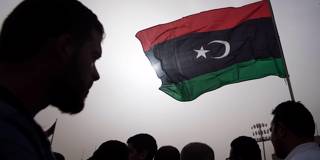The credibility of all external actors in the Libyan conflict is now at stake. The main domestic players will lower their maximalist pretensions only when their foreign supporters do the same, ending hypocrisy once and for all and making a sincere effort to find room for consensus.
MADRID – Over the last decade, Libya has become a failed state, descending from its own Arab Spring into the coldest of winters. The fall of Muammar el-Qaddafi’s authoritarian regime in 2011 did not lead to the social improvements that many had hoped for, but rather to misgovernment and misery. Now, the civil war that has been ravaging the country for years is in danger of becoming chronic. And the world, for the most part, has been looking away.
But the international community cannot evade responsibility in the face of this tragic course of events. Libya is a failed state today largely because certain external actors adopted failed policies toward it. The consequences of these missteps have been so toxic that they have affected other conflicts around the world.
To understand the origin and magnitude of the Libyan debacle, we must go back to the beginning of 2011. It was then, with the fighting between Qaddafi’s forces and the rebels at its height, that the United Nations Security Council adopted its historic Resolution 1973 – the first time it had authorized a humanitarian intervention by “all necessary measures” against the wishes of a functioning state. The resolution was adopted because the two permanent members with the greatest reservations – China and Russia – decided to abstain.

MADRID – Over the last decade, Libya has become a failed state, descending from its own Arab Spring into the coldest of winters. The fall of Muammar el-Qaddafi’s authoritarian regime in 2011 did not lead to the social improvements that many had hoped for, but rather to misgovernment and misery. Now, the civil war that has been ravaging the country for years is in danger of becoming chronic. And the world, for the most part, has been looking away.
But the international community cannot evade responsibility in the face of this tragic course of events. Libya is a failed state today largely because certain external actors adopted failed policies toward it. The consequences of these missteps have been so toxic that they have affected other conflicts around the world.
To understand the origin and magnitude of the Libyan debacle, we must go back to the beginning of 2011. It was then, with the fighting between Qaddafi’s forces and the rebels at its height, that the United Nations Security Council adopted its historic Resolution 1973 – the first time it had authorized a humanitarian intervention by “all necessary measures” against the wishes of a functioning state. The resolution was adopted because the two permanent members with the greatest reservations – China and Russia – decided to abstain.